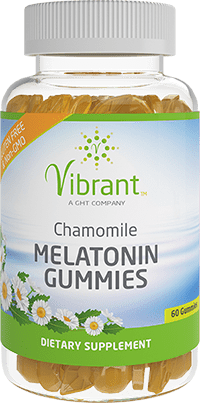Sleep and your immune system

By now it is common knowledge that many of us don’t get enough sleep. But what exactly does that mean? Is sleep really that important? If so, how many hours of sleep a day do we need, and does the quality of sleep matter? To answer these questions, you need only look at the abundance of research on the effects of sleep on the body and mind, including how sleep impacts your immune system.
Medical experts recommend that most adults get between 7 and 9 hours of sleep each night, although older adults may require slightly less. Yet according to the Centers For Disease Control (CDC), a full one third of all Americans gets less than that on a regular basis. The CDC report goes on to say that “sleeping less than seven hours per day is associated with an increased risk of developing chronic conditions such as obesity, diabetes, high blood pressure, heart disease, stroke, and frequent mental distress.”1
So how can getting enough sleep help you in avoiding sickness?
What your doctors know

Much is known about the connection between sleep and your immune system. While you sleep, your body naturally produces and secretes a group of proteins called cytokines. The multiple types of cytokines work together to activate your body’s immune response, and are integral to fighting every sickness from bacterial infections to viruses like the flu.
Likewise, the amount of hours you sleep impacts growth, stress, lung function, and cardiovascular health, as well as your intellectual ability and mood. In fact, explains NIH sleep expert Dr. Michael Twery, “sleep affects almost every tissue in our bodies.”2
Of course all of these benefits are contingent upon your getting the recommended amount of sleep per day. But what if you are not sleeping through the night?
What to do if your sleep schedule isn’t ideal
The simple answer to that question is you need more sleep. Of course we all know that’s easier said than done. Short naps during the day may be an option for some. But there is no substitute for a solid 7-9 hour stretch at night. One way in which you can encourage a good night’s sleep is to establish a bedtime routine that includes sticking to a consistent schedule, avoiding caffeine and alcohol, and putting away your electronic devices at least an hour before bedtime. But while this may help you fall asleep, there is no guarantee that you will stay asleep.

This may be due to a deficit in melatonin, the hormone that plays an important role in sleep. We know that melatonin naturally decreases with age. Research shows that the use of melatonin supplements can be effective in promoting quality sleep, and is safe and non-habit forming.3
If you are looking to boost your immune system, improve your health, and approach your morning routine with increased energy, consider adding Vibrant Nutraceuticals’ Chamomile Melatonin Gummies to your nightly routine. Low in sugar and gluten-free, they are a yummy way to ensure a restful and restorative sleep.
References
1 How Much Sleep Do We Really Need?, National Sleep Foundation
2 The Benefits Of Slumber: Why you need a good night’s sleep, NIH News In Health
3 Melatonin, Mayo Clinic
NOTE: The National Sleep Foundation, NIH News In Health, and Mayo Clinic have not reviewed or approved the above article.

